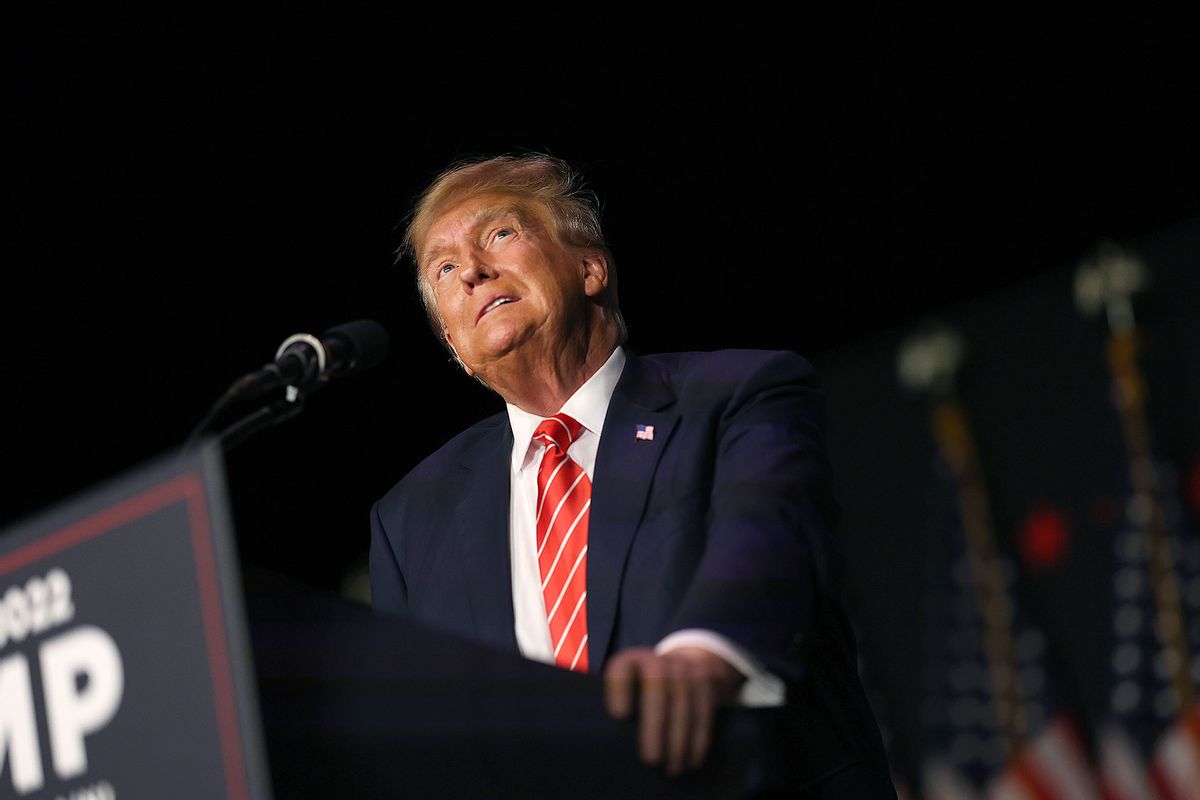“Alarming implications”: Legal scholar says Trump disqualification case headed to Supreme Court

The January 6, 2021, Capitol attack is at the core of a lawsuit seeking to disqualify former President Donald Trump from Colorado’s 2024 ballot under the 14th Amendment’s “insurrection clause.”
Six Colorado voters filed a lawsuit in September, under the state’s law governing primary elections, which grants the secretary of state the power to “certify” the “names and party affiliations of the candidates to be placed on any presidential primary election ballots.” With the help of a watchdog group, Citizens for Responsibility and Ethics in Washington, the plaintiffs argued that Trump is ineligible to hold office again under Section 3 of the 14th Amendment, which disqualifies anyone who “engaged in insurrection or rebellion” against the Constitution.
CREW contends that permitting Trump ballot access would violate the secretary’s duties under both state law and the Fourteenth Amendment due to Trump’s constitutional ineligibility for the presidency.
“As ‘eligible electors,’ Petitioners have standing under Colorado law to challenge the constitutional eligibility of candidates in the 2024 Republican presidential primary election,” according to the lawsuit. “If an ineligible candidate appears on the ballot that Petitioners will cast in the election, Petitioners will suffer an injury in fact to a legally protected interest under Colorado law because the election would not be among eligible candidates, the Secretary of State would have violated her duties under the U.S. Constitution and Colorado law, the ineligible candidate would have affected the integrity and fairness of the election, and the party could end up with an ineligible nominee in the general election.”
The trial opened on Monday in a Colorado state court with a lawyer representing the six Colorado voters arguing that Trump “incited a violent mob” to attack the Capitol on Jan. 6 “to stop the peaceful transfer of power under our Constitution.” Such actions deem Trump “ineligible” to be president again, the lawyer said.
The plaintiff’s lawyers assert that the issue is straightforward — disqualifying Trump from the presidency is similar to disqualifying a candidate who does not meet the Constitution’s minimum age requirement of 35 for office. But Trump’s legal team contended that the lawsuit, which they characterized as “anti-democratic,” is equivalent to “interfering with the election” in the upcoming 2024 presidential race, where the former president is “the candidate most likely to win the presidency,” according to Trump attorney Scott Gessler.
The former president’s legal team has raised a number of questions, including whether the provision was originally intended to apply to the presidency, given the absence of explicit mention even though “presidential and vice presidential electors” are mentioned, and whether it targets those who exercised free speech to support unpopular causes or only those who resort to violence, HuffPost reported.
Sarah Wallace, the state district court judge presiding over the case, has established nine key issues to be addressed during the week-long trial. These include determining if Section 3 of the 14th Amendment is applicable to presidents, clarifying the definitions of “engaged” and “insurrection” within that section, determining whether Trump’s actions align with these definitions, and examining whether the amendment is “self-executing,” The New York Times reported.
Since the Jan. 6 attack, these questions have been the subject of debate, particularly after Trump declared he was running for president, but there is limited historical context available to provide clear answers. The language that exists in the Constitution is also “black and white” and “has never been repealed and must be reckoned with,” professor of law Kim Wehle pointed out, explaining that the 14th Amendment was ratified soon after the Civil War.
The disqualification clause was originally applied to people who had fought for the Confederacy, and modern interpretations have had few instances of being tested, especially never in a case so significant.
But the Amendment “clearly states that anyone who has rebelled against the United States – including a President – cannot hold office or execute the nation’s laws,” Bennett Gershman, a law professor at Pace University, told Salon.
“When he assumed the presidency, Trump took an oath, required by the Constitution, to ‘faithfully execute the Office of President of the United States, and to the best of my ability, preserve, protect, and defend the Constitution of the United States,’” Gershman explained. “Can an ex-president who swore to preserve, protect, and defend the Constitution and who thereafter betrayed that oath be allowed to hold that office again?”
While the case may seem less prominent than the four high-profile criminal trials awaiting Trump, it stands as the sole one with the potential to directly influence the 2024 election. Similar lawsuits are also pending in Michigan, New Hampshire and Minnesota, where oral arguments are scheduled to begin Thursday.
Want a daily wrap-up of all the news and commentary Salon has to offer? Subscribe to our morning newsletter, Crash Course.
Regardless of the decision reached in the Colorado and Minnesota courts, it’s almost certain that the case will be appealed to higher courts, with the Supreme Court ultimately expected to address the question of whether Trump can be disqualified from the presidency, Gershman explained.
“There has been no Supreme Court ruling on the disqualification of an official, certainly not a former president, who has been found to have engaged in or supported an insurrection against the government that compels that official’s disqualification from holding office,” he added. “This case will come to the Supreme Court as an extraordinary, unprecedented, and momentous case with uncertain and alarming implications.”
Read more
about the Trump ballot challenges

